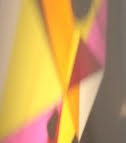
"stendhal meant something different than this. he meant, not writing about anything, but adding twenty lines to a work under way. then his rule guaranteed high productivity (at least at first-draft level): 20 lines x 300 days = 6,000 lines - about 200 pages, or the better part of one of my novels, if not his. did he follow his rule? if he did, did it prepare him in some way for the incredible fifty-two day binge on which he dictated la chartreuse? (why does dictation, practiced by two novelists, perhaps my favorites, so frighten me? go ahead, see what happens. your Walkman won't tell.) does writing every day foster a style that is one's own - that is, a way of writing uniquely artificial and at the same time "natural", like g.p.'s unhurried sentences and stendhal's hurrying ones? maybe. i'm skeptical, because i remember starting to write a novel "spontaneously" on my typewriter and finding that what came out was, syntactically, late henry james (that other dictator). i also feel that behind these daily warm-ups there is another or several other writers whom i'm imitating unawares, especially as i approach the zone of the page where the twentieth line is coming to an end, and that an end is more than a cessation, more too than a conclusion (conclusions being unacceptable to those who practice modernism), the expression of a wry awareness that although you and i feel and speak, any speaking of our feelings will be imperfect, fragmentary, and expressive only through its failure to express.
harry mathews, 8/9/83, in 20 lines a day.
the text above is the entirety of one page of harry mathew's 20 lines a day. in the book, mathews attempts to write following stendhal's dictum for writing "20 lines a day, genius or not." mathews book is certainly genius. his writing is precise, yet all over the place subject-wise. part diary, part literary experiment, and part prose-like ruminations, reading the book is really reading a writer's process of thinking as writing, and as much as mathews fears the idea of dictation as a writing process, the book reads very much as if mathews was speaking.
with only one or two exceptions, each "chapter" or segment begins and ends on its own page, which reminded me of how much i love to read books that can be read all the way through, as well as in single focused moments. several of gerhard roth's novels are also broken down like this. (i would love at some point to compile a list of books with chapters or segments of a page or less...)
i haven't read a lot of writing from the 1980's, but mathews' mention of the walkman (as opposed to the tape recorder) is pretty wonderful. i remember the first time i saw and heard the first consumer model of the sony walkman while in highschool. it was 1979, in gym class. another kid's dad had just returned from japan and had given one to his son. i remember him putting in a cassette and watching the headphones slowly move around the group of us, watching each kid's face react to the sound until the headphones were ritually placed upon my head. i remember how incredible the sound seemed when the phones went over my ears, and i imagined audio sound could never be better. unfortunately i don't remember at all what the music was.
i don't think i've ever had such a response to a quality of sound in relation to the positives of a "new" technology. perhaps what made the walkman so much more exciting than the development of the cd was that it took an already existing personal medium (in terms of building tapes of favorite songs for the car, house, etc.), and made it sound a zillion times more personal. it wasn't just the quality of sound that was amazing, but the seemingly tiny size of the machine itself, and its setting the table for a new kind of portable private musical experience. i remember sitting in this huge nearly empty gym and listening to music, knowing that the person sitting close enough to touch me could not hear what i was hearing. we were all together, but for a few moments, each of us listeners got to transcend our known reality towards a new one... we were transported.
of course, the walkman also set the table for the ipod, and the current situation where music has mostly become a soundtrack for other activities. it has led us towards inhabiting a situation, where music simply plays while one does things, not because they are listening, but because music can now be played everywhere or anywhere. it is now possible to have music accompanying every minute of one's life, and hence, the activity of listening to music has certainly been diluted by its availability at any time, in any place, in any form. obviousely i'm not the first person to bemoan (as well as embrace) the situation.
what's also interesting in mathews' slight mention, is that he writes of the walkman as a vehicle for recording into and then listening back to what one has just, or perhaps recently, created. i remember my mother, who was my grandfather's secretary, sitting at her desk with headphones transcribing her father's words into typed letters for him to sign; and i think about the stories of arthur russell walking down the streets of ny with headphones on, listening to mixes of his own music while being immersed in the city, to get a sense of whether or not a mix was "right"...
Labels: 20 lines a day, dictation, harry mathews, listening, sony walkman, stendhal






















